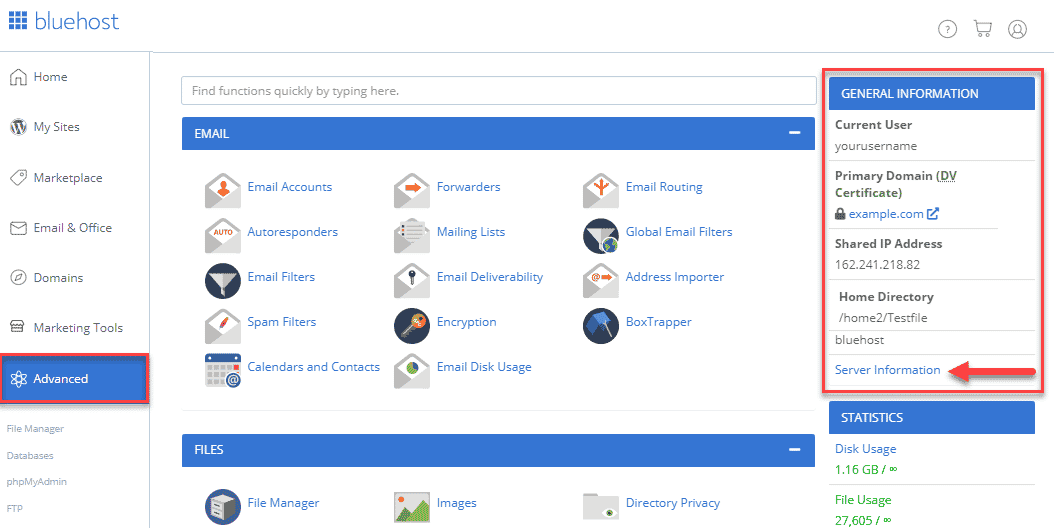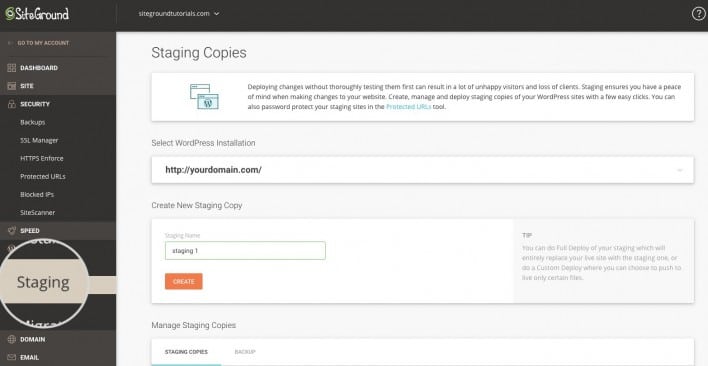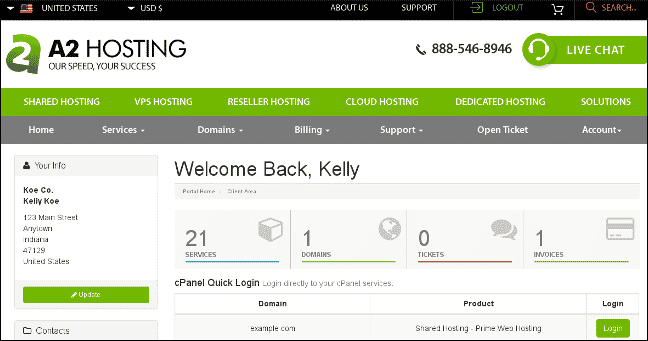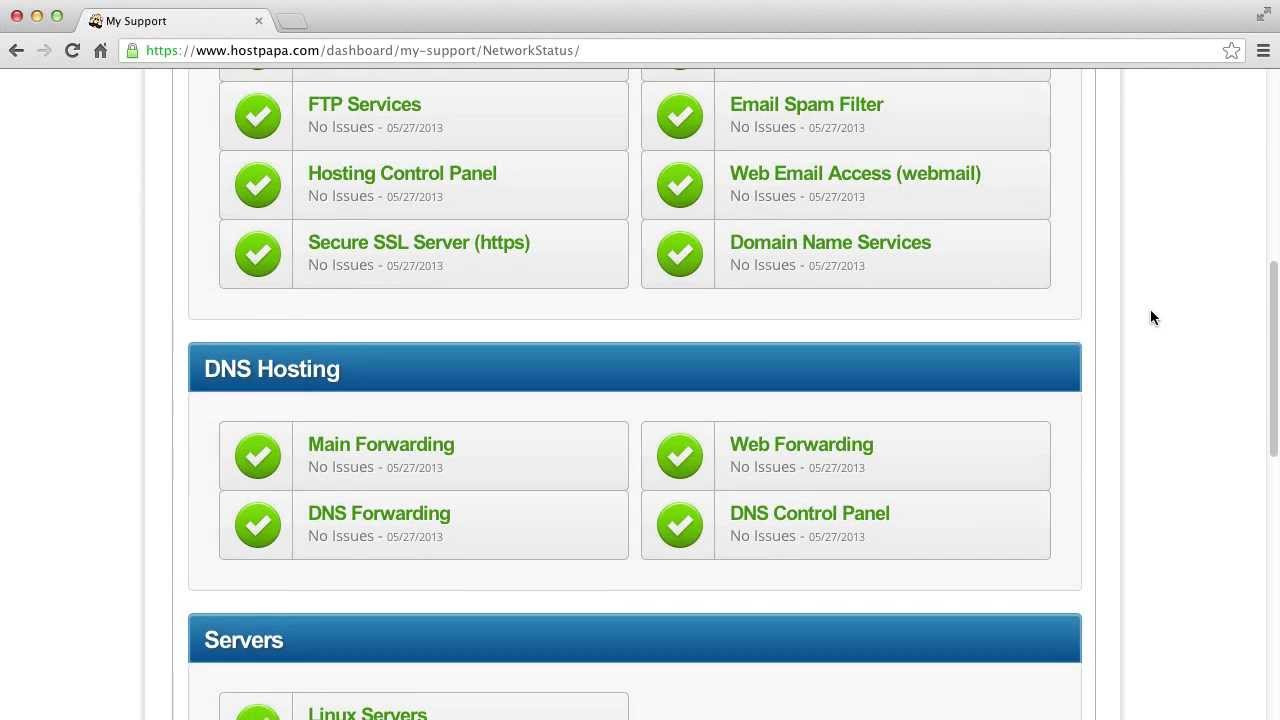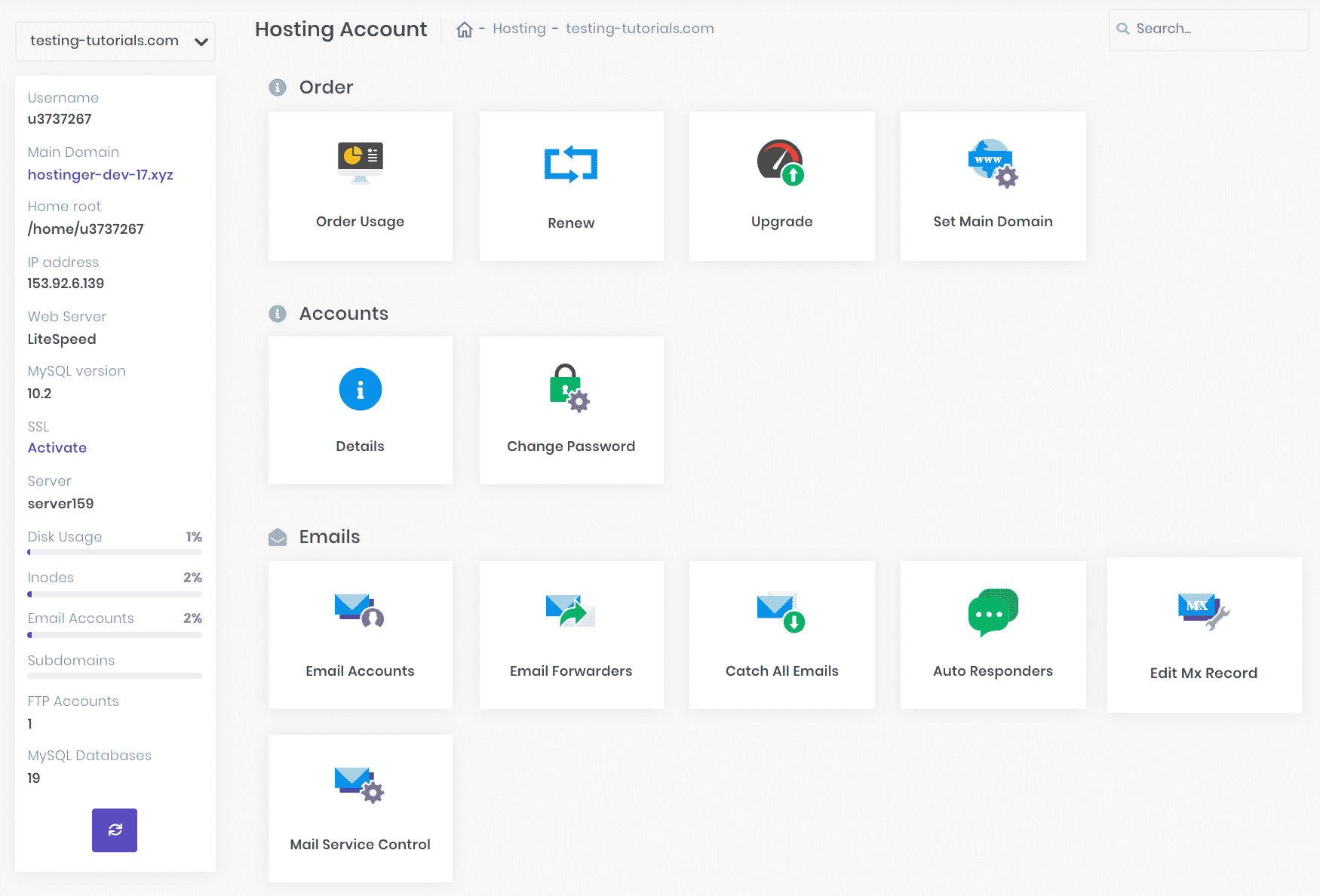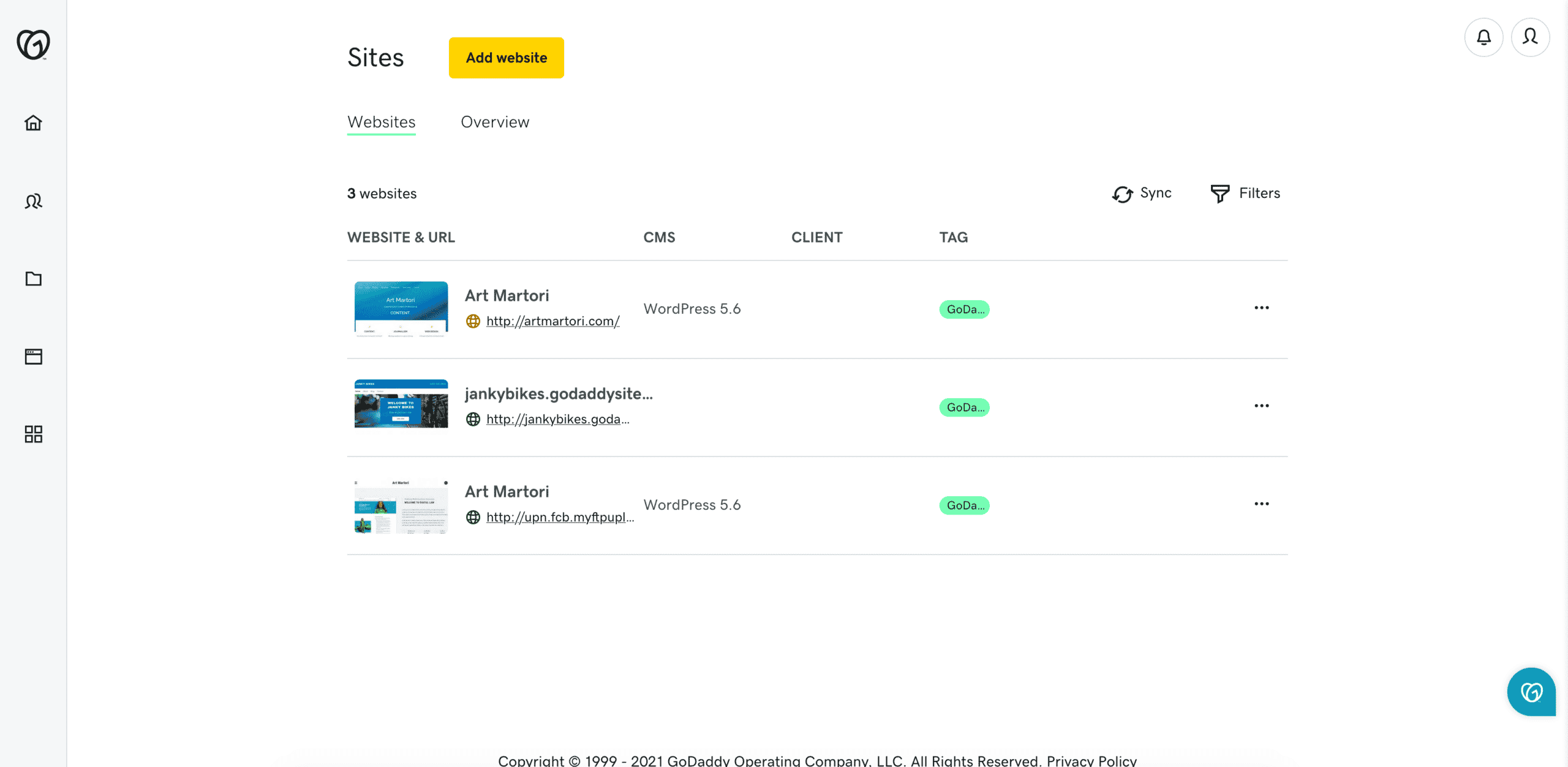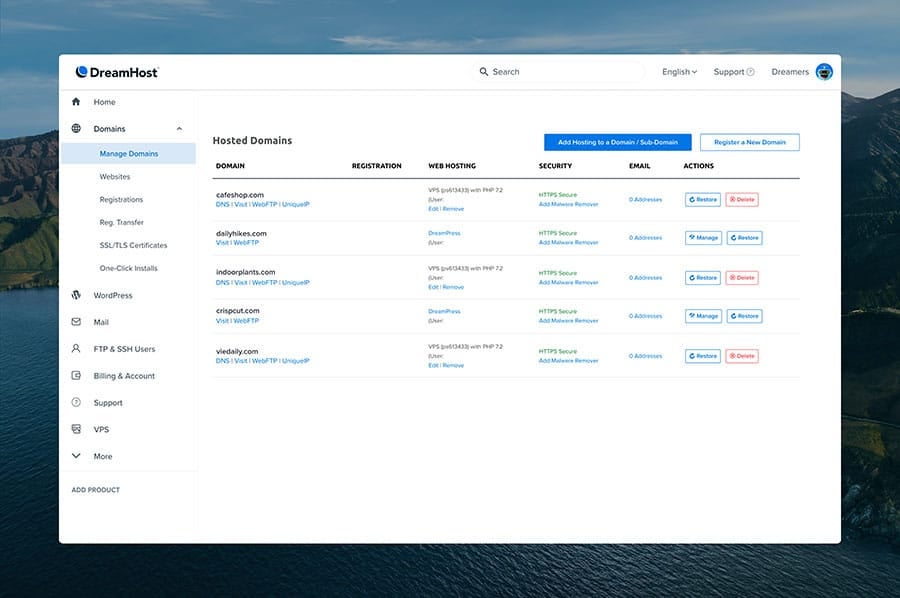Do you need to find the perfect web hosting provider for your website? Then keep reading, as we will reveal some of the top web hosting services on the market to keep web developers from wasting time or money when picking the right fit for their needs.
Top Web Hosting Providers
Web hosting services differ in features, pricing, and other factors, which is why shopping for the right host can be quite the time-consuming task. While only you know your specific needs, here is a list of the top web hosting providers in terms of speed, uptime, and customer support.
Bluehost
Over two million websites use Bluehost, which got its start in 2003. Many owners of new websites choose Bluehost due to its longevity, popularity, user-friendliness, and affordability. You can expect solid performance, as Bluehost is rated highly in speed and uptime.
If you have a WordPress site, you will be glad to know that WordPress.org officially recommends Bluehost for hosting. As for its feature set, Bluehost offers a ton under its three-year introductory plan that starts at $2.75 per month and renews at $8.99 monthly, including:
- Free domain name
- One-click installation for WordPress, Drupal, and Joomla
- Website builder
- 50GB storage
- Unlimited bandwidth
- Free email accounts
- SSL
- 24/7 customer support
- 30-day money-back guarantee
- Instant activation
Who is Bluehost ideal for? Beginners with WordPress sites seeking a solid hosting solution since it is so easy to use, has trusty performance, and enough support should you need it. And, if you are not a beginner and need hosting for a higher-traffic site, Bluehost offers not just shared plans, but also managed, VPS, and dedicated servers too.
Read: Best WordPress Drag and Drop Page Builders
SiteGround
SiteGround offers web hosting starting at $3.99 per month. For that price, you can get hosting for a single site, 10GB web space, unmetered traffic, free SSL, CDN, and email, plus enhanced security, managed WordPress, unlimited databases, and a 30-day money-back guarantee.
In the web hosting business since 2004, SiteGround has been known to offer excellent uptime and fast load time, which are some of the reasons why WordPress.org officially recommends it. Add in superb support, and it is no wonder why over two million domains are hosted through this web hosting provider.
A2 Hosting
Based in the United States, A2 Hosting has been around for 20 years. Thanks to its use of LiteSpeed cache and the fact that its servers are optimized for WordPress, A2 offers some of the fastest hosting around, which is great news if you place a premium on performance.
Beyond speed, you can also enjoy reliability here, as A2 boasts superb uptime.
While optimized for WordPress, A2 Hosting works well with all of the top content management systems, such as Drupal, Joomla, Magento, and OpenCart. And, regardless of which hosting plan you pick, A2 offers the following at no additional cost: Site migration, automatic backups, LetsEncrypt SSL certificate, and unlimited SSD storage.
Speaking of plans, the Lite plan is A2’s cheapest offering. It lets you get started for just $2.49 per month, which renews to $10.99 monthly. With it, you get hosting for a single site, a domain name for 12 months, unlimited bandwidth and email accounts, plus Cloudflare CDN. Should you need it, A2 has 24/7 live support via chat, email, phone, and tickets. And to serve all types of hosting needs, they offer shared, VPS, reseller, and dedicated plans, all of which come with a 30-day money-back guarantee.
Read: Magento vs Shopify vs WooCommerce
HostPapa
After getting its start in 2006, HostPapa has now grown to host over half a million websites. What can you expect from this web hosting provider? In simple terms, great value for your money, a robust feature set, and excellent performance thanks to superb speed and uptime.
HostPapa’s shared hosting plans start at $3.95 per month. For that price, you can get hosting for unlimited websites, a free domain and standard SSL certificate, unlimited email addresses and SSD storage, unmetered bandwidth, and a website builder for beginners. You can also install over 400 apps with easy, one-click installation.
While HostPapa’s performance and features are outstanding, its support may be even better. You have a bevy of options for assistance, as you can turn to a knowledge base of informative videos or get support through live chat, fax, phone, and email in multiple countries and languages.
Hostinger
If pricing is your number one factor when choosing a web hosting provider, give Hostinger a look. It has plans that start at $1.39 per month, depending on the length of your subscription. Best of all, Hostinger offers such affordability without compromising performance and quality, so you can get what you need without skimping on essential features or speed.
Besides cheap pricing, solid speed, and good uptime, Hostinger offers plenty depending on the plan you pick, such as free email, SSL, anti-DDoS protection, and a domain, plus unlimited bandwidth. It has an easy website builder, 24/7 support, and a 99.9 percent uptime guarantee to give you peace of mind. Hostinger also offers data centers across the globe in the United States, Asia, and Europe.
Hostinger’s hosting plans can fill various needs through its shared, cloud, and Windows VPS options, but it is most often used by beginners.
Read: Top WordPress Theme Stores
GoDaddy
Here is a web hosting provider that does not need an introduction, as GoDaddy’s name has been plastered everywhere over the past several years. It powers over 40 million websites, both small and huge, and it offers good uptime (there is a 99.9 percent guarantee) and good load time.
The Economy hosting plan costs $5.99 per month. It can host one website while offering 100GB of storage, unmetered bandwidth, free one-click WordPress installation, security monitoring, 24/7 support, and a free domain. Pick a yearly plan, and you can get a 30-day money-back guarantee, should you decide to shop elsewhere.
Other GoDaddy perks worth mentioning include an easy-to-use drag-and-drop site builder, plus dev-friendly tools like cPanel, Python, MySQL, CloudLinux, and more.
What is the main problem with GoDaddy? Its price can balloon out of control due to so many upsells, so keep this in mind if you do not want to pay a premium for extras such as email accounts, SSL, or site backups.
DreamHost
You can get web hosting from DreamHost starting at $1.99 per month. It has 24/7 U.S.-based expert support, is easy to use, and gives you some added peace of mind via its 97-day money-back guarantee plus an uptime guarantee. With over 24 years in the hosting business, DreamHost now covers over 1.5 million sites, apps, and blogs spread across 100 countries.
Some features you can expect from DreamHost include a website builder for beginners, pre-installed WordPress, unlimited monthly data transfer, multiple domain management tools, and solid security via LetsEncrypt SSL.
As for what sets DreamHost apart from some of its competitors, that would be its monthly pricing plans. Unlike other web hosting providers, you can pay monthly here if you are on a budget and don’t want to invest in an entire year upfront.
Choose the basic Shared Starter plan, and you can host one site and get a free domain, unlimited traffic, free WordPress migrations, free SSL, and more. DreamHost also offers VPS, dedicated, and cloud hosting for developers needing more advanced features.
Some possible downsides to keep in mind include slow loading time and poor uptime compared to other web hosting providers in this list. DreamHost also lacks a cPanel, which may throw some developers off, but it does have a proprietary admin panel that functions similarly.
Read: Best WordPress Security Tips
What to Look for in a Web Hosting Company
There are a number of factors web developers, web designers, ecommerce owners, and content managers should consider when choosing the right web hosting provider for their website(s). These web hosting features include:
- Security
- Uptime/Reliability
- Average Page Load Speed
- 24/7 Support
- Disk Space
- Bandwidth
- Third-party Apps
- Content Management Systems (CMS)
- Website Building or Website Builder
- Domain Names
- Backups
- FTP Dashboard
Security
One of the most important features of a web hosting provider is security, particularly if you manage a website that handles sensitive custom data or is an ecommerce site. Over 40% of small business websites suffer cyberattacks, and one way to fend those off is by the extra layer of security your web host provides. Common security features of a web hosting provider include automatic malware and virus scans, firewalls and firewall management, automatic updates to CMS’s such as WordPress and Drupal, and providing SSL certificates to encrypt data sent to and from your website.
Uptime and Reliability
Uptime is another important feature for someone to look out for when shopping for a web hosting service. Uptime is the measurement of the time your website is available online, typically measured in percentages. You want this number to be as cse to 100% as you can get it – normally you will see advertised uptime rate of 98% or 99%.
There are a number of reasons why a website might become offline (aka, visitors cannot reach your website). It could be because of a cyberattack or an issue with a hosting server. It could also be an error in code from a change a web developer made, or even a bad plugin update for a WordPress site.
Ways to manage and mitigate website downtime include ensuring your web hoster offers backup servers (in the event that you need to rollback or install a previous version of your website) and geolocated backup servers, which are servers located in different geographic locations. These are useful in the event of a natural disaster. For instance, if you have a website hosted in South Florida and a hurricane strikes, it could knock out your website. Having your servers located in multiple areas makes the likelihood of your website being affected by a natural disaster less likely.
Read: WordPress.com vs WordPress.org: Learn the Differences
Average Page Load Speed
Page load speed refers to the amount of time, in seconds, it takes for a web page to render in the browser. Anything greater than 5 seconds is considered bad for user experience. Further, pages that take longer than 5 seconds to load can hurt your website’s ranking in the search engine results pages (SERPs) of popular search engines like Google.
Look out for web hosting services that optimize page load speed by using servers with solid-states drives (SSD), which are less prone to crashing and are faster than regular hard drives. Avoid choosing hosts that rely heavily on shared servers, as the more websites sharing your server, the fewer machine resources (RAM, Memory, bandwidth, etc) there is to go around.
Finally, if your web host provides a content delivery network service (CDN), you should try to take advantage of it, as it can greatly increase page load speed by using caching and geographic location to distribute content so that it loads nearest to the visitor’s location..
24/7 Support
This one is fairly simple: does the web host provide 24/7 support in the event of an emergency? Are the reviews of the hosting company’s technical support good or bad?
Disk Space and Bandwidth
Disk space is important because it determines how much space you have for website files on the web host’s server. This can include your HTML files, text on pages, video content, images, and so forth. It also determines how much space you have for user-generated content (UGC), such as any files that visitors might upload to your website.
Bandwidth, meanwhile, determines how much data can be transferred back and forth between the end-user and the hosting server. The higher the traffic you anticipate having, the more bandwidth you will need. Bandwidth is part of what determines your page load speed, so always be mindful of how much bandwidth you have available and adjust accordingly.
Read: Best WordPress Alternatives
Third-party App Installs, CMS, and Web Page Builders
Not every person hosting a website is a web developer or wants to put in the effort hand-coding functionality into their websites. Usually it is easier to install a content management system and then use existing plugins to add whatever features you want to your website. Then, if you want to tweak how the site works, you can add your own custom scripts.
Because of this, it is important to look for web hosting companies that offer third-part applications, CMS installs, and web page builders that – may or may not – have drag and drop design elements.
Domain Names
While it is not essential that your web host also sells domain names, it makes life a little easier, as you can have your hosting and domains all in the same dashboard. Further, if you have your domain name under one company and your hosting server at another, you will have to configure your nameservers to point to the right place. Not a difficult task, but something to be aware of.
Control Panel and FTP
A control panel gives you access to settings, tools, and options for your web hosting. A typical control panel lets you effortlessly manage databases, URL configurations, access file via file-transfer protocol (FTP), and tweak security settings – to name but a few.
Read more content management system tutorials, reviews, and comparisons.
If you just want to register your domain, customers can purchase a domain name from Google Domains for as little as $7/year.


